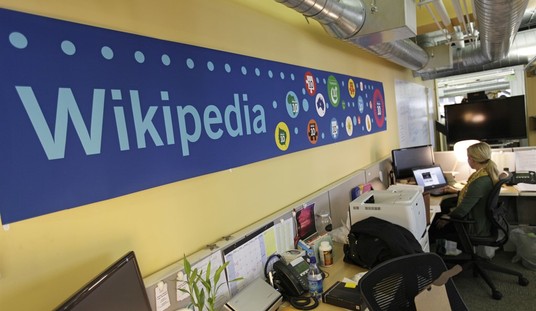Six months ago, it seemed that fiscal conservatism had gone onto life support. Democrats won complete control over the federal government, and Barack Obama promised a new era of activism in DC and sweeping programs of benefits for no cost. “Pragmatists” advised Republicans to drop their principles of limited government and climb aboard the Beltway gravy train, or get left in Obama’s populist wake.
Suddenly, though, Obama’s numbers are tanking, and people are objecting to the same expansive programs that supposedly doomed the GOP to Whig status. What happened? It’s simple, and as I explain in my weekly American Issues Project column, it shows the winning strategy for fiscal conservatism:
[G]etting the bill has an interesting and salutary effect on popular opinion. When the first estimates of a national deficit started hitting $1,000,000,000,000 and above – some estimates as high as $4 trillion over the next ten years – health-care reform suddenly lost its luster as a political issue, especially as unemployment and deficits keep rising.
Pollster Scott Rasmussen reports that even Democrats have lost their taste for it, with those strongly supporting health-care reform dropping eight points in the last two weeks. Independents have flipped on the issue altogether, with 51% now strongly opposed to the plan, after having gotten wind of the costs.
Advocates tried playing a little class warfare in response. Rep. Charles Rangel crafted the House bill to get funding by sticking a 5.4% “surtax” on Americans making over $350,000 a year while promising that taxes won’t hit the middle class. However, as Keith Hennessey pointed out, the mandates and penalties associated with this bill squeeze the middle class who don’t get subsidies for buying coverage and get penalized for failing to do so. The mandate to buy insurance means more money directly out of the pockets of voters who expected to get something for … well, nothing. …
People love government benefits when someone else pays the bill, whether it’s the rich or their grandchildren. Only when the costs become clear and they apply to the broad electorate do voters suddenly discover their inner fiscal conservative. And in this case, the confiscation of capital from those with the wherewithal to invest it in the economy will mean lost opportunities, higher unemployment, higher deficits, and an extended recession.
Nothing creates fiscal conservatives as well as having liberals in power. Unfortunately, that’s a dangerous strategy, as they can do plenty of damage while people learn the proper lessons from their wildly irresponsible policies. It took several months for people to realize, for instance, that a stimulus package that spends most of its money in the second, third, and fourth years wouldn’t stimulate the economy in Year 1 or arrest unemployment rates. That lesson will cost us $800 billion in principal and probably around half as much more in interest payments.
The opportunity we have now is to show people the bill. As soon as the CBO scored the costs of ObamaCare, support for it rapidly dropped, and it dropped for Obama, too.
Be sure to read it all. Don’t miss the other bloggers at AIP, either. Nick DeLeeuw warns the rest of America that Michigan’s 15.2% unemployment rate will come their way soon. Tabitha Hale gives us a crash course in economic suicide. Matt Margolis says there may still be hope for the GOP in New York.








Join the conversation as a VIP Member